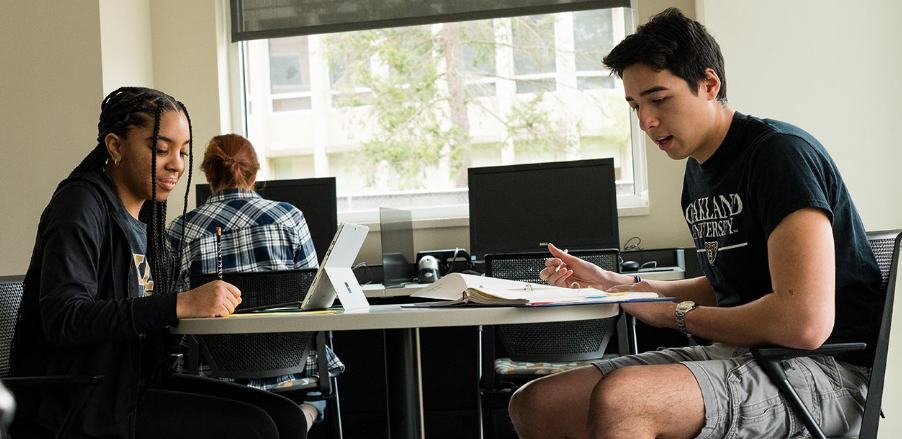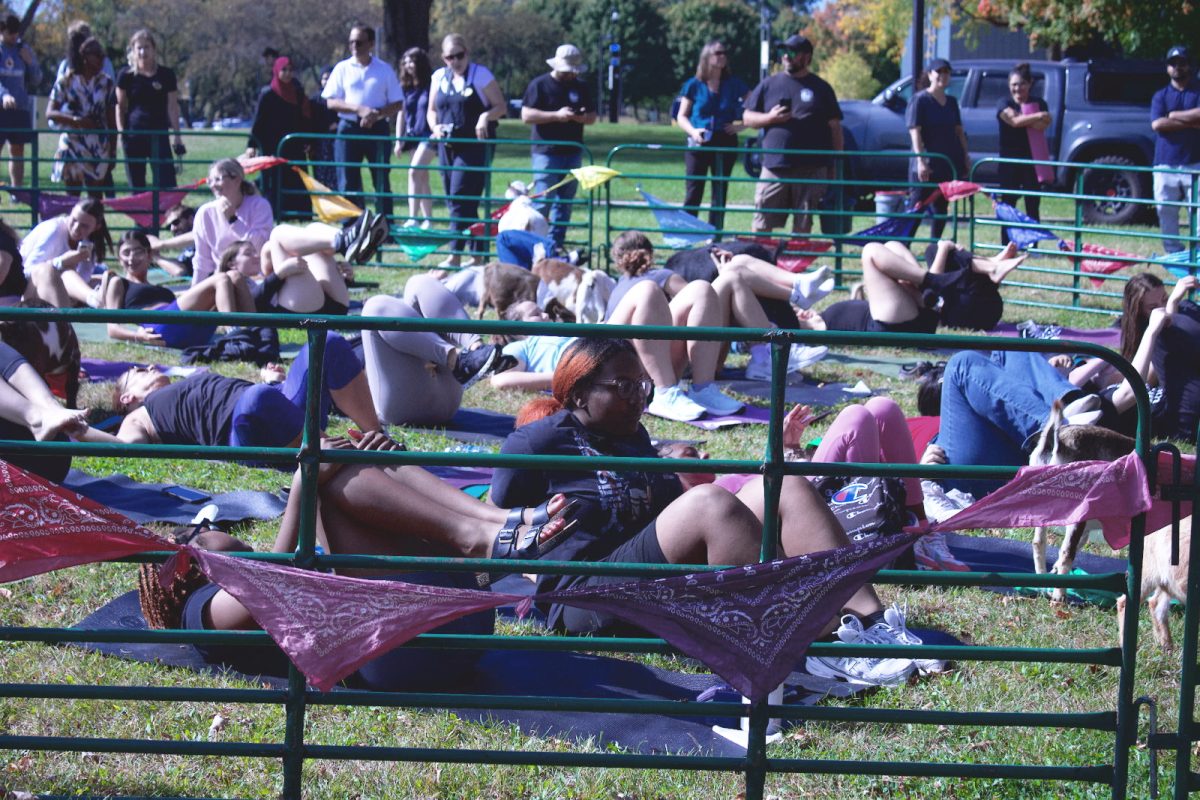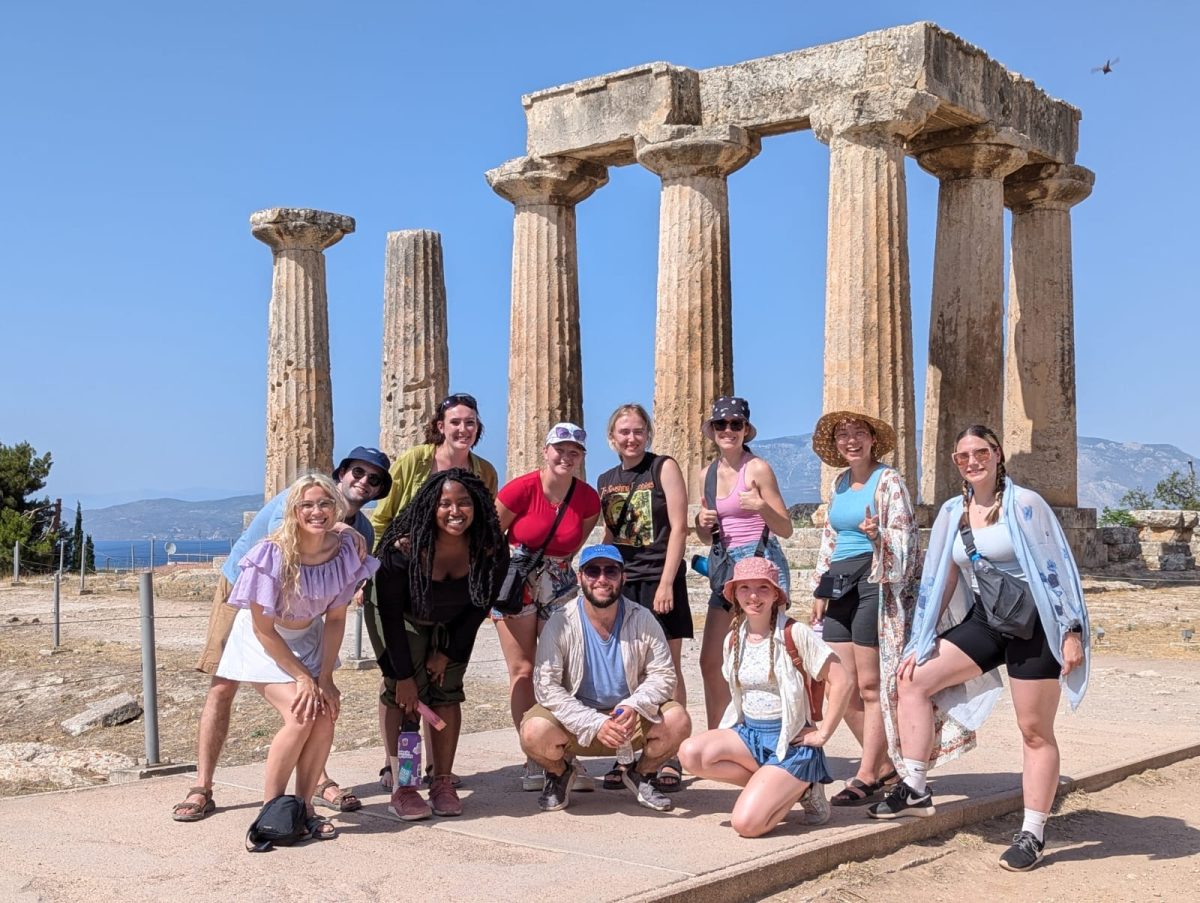As a new semester begins, the Academic Success Center (ASC) hosted the virtual workshop, Back on Track, to help students navigate academic challenges and maintain good academic standing.
On Jan. 8, Academic Support Coordinator Amy Ward highlighted organizational strategies for managing time, maintaining focus and improving learning to enhance studying during the winter semester.
“In college, 25% of the learning that you do is in class,” Ward said. “So, 75% of the learning that you do in college is independent. But how do I handle that 75% of learning something that I don’t know on my own?”
Ward kicked off the presentation by outlining intentional learning strategies based on Bloom’s Taxonomy — a framework developed to create learning and assessment methods. The pyramid diagram starts with remembering and understanding, moving up to applying and analyzing to finalize with evaluating and creating.
“We want to take learning to the top of Bloom’s Taxonomy through active learning,” Ward said. “You may have heard before that if you can teach something to somebody, then you will understand it better and that really is true.”
Thus, explaining content to others is the first learning strategy for enhancing study time. After reviewing content from a textbook or from notes, Ward advises teaching it to a pet, a friend or just explaining it out loud during a commute.
“Mind maps are another way to get out of your retrieval in your head and onto the paper,” Ward said. “You want to be present in every class. Remember, we talked about that engagement and that presence.”
As a visual explanation of content, mind maps draw connections between examples, concepts and processes that take memorizing to the next level.
“You definitely want to plan your time,” Ward said. “Students, when they come to college, at first, they take a look at their lecture schedule, and I feel like they have so much time — this is only 25% of what you’re learning.”
Two to three hours of study per credit hour per week is a rule of thumb at the ASC, where a three-credit class translates into six to nine hours of studying outside of class. To accomplish this, Ward advised creating flexible schedules with set chunks of study time in what is known as the Pomodoro technique.
“There was a graduate student who had a little tomato timeline,” Ward said. “He set it for 25 minutes, and during that 25 minutes, he focused just on the thing he had to do.”
Increasing focus time using the Pomodoro technique will come with practice and dedication. However, taking advantage of the break time to integrate healthy habits like going outside, doing exercise and eating balanced meals will multiply the benefits, Ward explained.
“At the end of the day, please consider change,” Ward said. “Trying some different study strategies, thinking even time management a little bit differently, and addressing other challenges is essential.”
The speaker highlighted that time management, procrastination and mental health are some of the major challenges preventing college students from getting the grades they strive for. Extending an invitation to visit the ASC, Ward advised students to recognize that mistakes and challenges are normal.
“Sometimes students are apprehensive to come in for tutoring or the supplemental instruction or the Academic Support appointments,” Ward said. “Please know that we are here for you; would love to meet with you; would love to be your cheerleader; would love to hear more about what your experience has been in school and pull out some of those bags of tricks that I have and talk about things that might work for you.”







